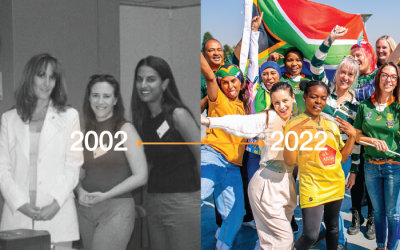Supporting a Sector That Could Save Us

SMMEs make up more than 90% of all formal business in South Africa and employ 50-60% of the workforce. This is according to the International Finance Corporation (IFC) which also estimates that this vital sector contributes 34% of the national GDP. The important role of small businesses in the growth of a country’s economy is not exactly breaking news; Countless studies show that SMMEs play a pivotal part in reducing poverty, creating employment and supporting income empowerment and economic growth.
SMMEs also provide some distinct advantages when compared to bigger businesses. Small businesses are more flexible and can adapt more quickly to changing trends in the market; they also have a closer, more direct relationship with their customers which makes it easier to receive feedback and detect shifting preferences; decision-making is typically faster in SMMEs due to less bureaucracy and red tape; in addition, they often make use of home-grown resources and contribute to the local economy. Microenterprises, in particular, perform a crucial role in developing countries by supplying goods and services to local communities, providing jobs, enhancing income prospects and allowing individuals to break out of the poverty cycle.
However, despite the critical role of small businesses in driving economic growth, SMMEs continue to face a series of stumbling blocks which are stifling the growth of the sector. According to the IFC, 70% of small businesses in South Africa fail in the first year, compared with a global average of 20%. Some of the obstacles faced by SMMEs include onerous regulations, lack of skills, poor infrastructure as well as a lack of information on services available to them from government and NGOs. But by far the greatest challenge to starting and growing a small business is a lack of access to funding. The IFC estimates that three-quarters of South African SMMEs are rejected when applying for credit, and only 2% of fledgling businesses are granted bank loans.
For an aspiring entrepreneur who happens to have a disability, the situation is even more daunting. Aside from any real challenges presented by their disability, entrepreneurs with disabilities also face ongoing societal preconceptions and discrimination, resulting in exclusion and being viewed as high-risk investments. The Small Enterprise Finance Agency (sefa) offers some measure of hope by way of their Amavulandlela Funding Scheme, which was set up specifically to provide credit facilities to entrepreneurs with disabilities.
Mxolisi Matshamba, CEO at sefa, explains that the Amavulandlela Funding Scheme gives entrepreneurs with disabilities an opportunity to confidently grow their businesses and flourish. “This is a fund only for entrepreneurs with disabilities and opens opportunities for them to access the fundamental social and economic rights that all other entrepreneurs enjoy. It widens the scope for their businesses to create jobs and integrate into the mainstream economy,” he says.
The scheme offers credit facilities from R50 000 to R15-million at a preferential fixed interest rate of prime less 5%, and also offers business development support. Over the years, since the scheme’s launch in 2015, there has been an increase in the number of applications. Jabulile Motlhako, Project Manager of sefa’s SMME Disability Programme, confirms, “To date sefa has managed to build a solid pipeline of entrepreneurs with disabilities operating in various sectors thus contributing to the country’s economy and creating job opportunities.”
The Amavulandlela Scheme dovetails easily with Progression’s employment hubs which comprise several SMMEs focussing on varying lines of work including sewing, furniture manufacturing, ceramics, web development, payroll and agriculture. The aim of the hubs is to support skills development of previously disadvantaged individuals (most of them being people with disabilities) through learnership programmes, and to equip them with the knowledge and skills required to start their own business, however lack of access to funding usually prevents them from moving forward. sefa’s funding programmes could be a missing piece of the puzzle to enable our learners to establish their own sustainable businesses and secure a brighter future.



